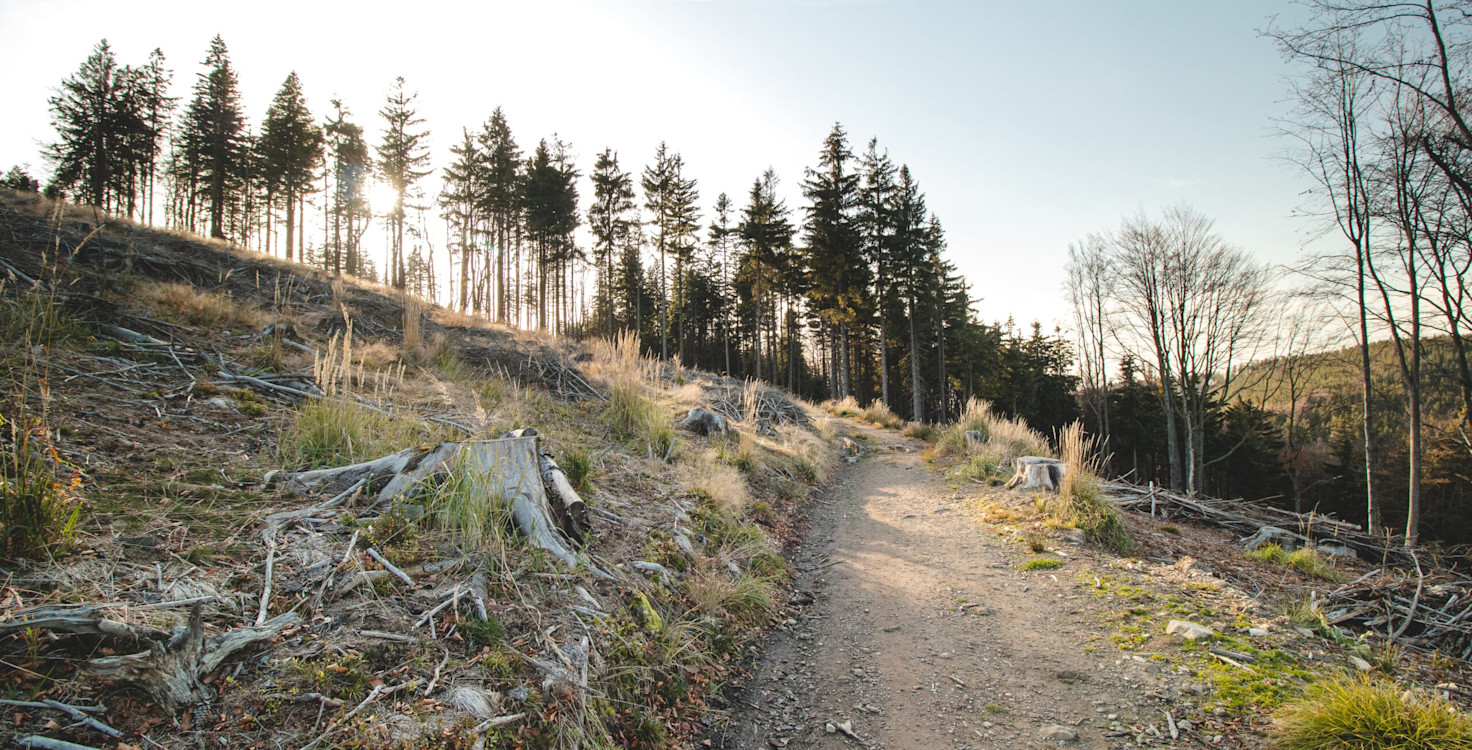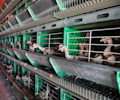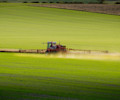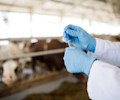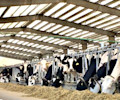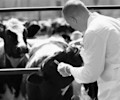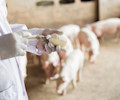$70 trillion-backed FAIRR investor network finds meat and dairy industry failing to manage its biodiversity impacts, undermining targets of a new global deal for nature and exposing companies to increased regulatory, legal and reputational risks
New research today shows global meat and dairy sector performs very poorly on three biodiversity metrics expected to be part of a legally binding “Paris Agreement for nature” at COP15: Deforestation, nutrient pollution and freshwater conservation
At least 60% of companies source soy for feed from areas at high risk of deforestation and have still not set deforestation targets. Less than one in five meat, egg and dairy firms are adequately managing the pollution of waterways from manure
“Investors are focused on material financial risks for companies, and a global agreement on nature at COP15 would see the intensive animal agriculture industry face increased regulatory, legal, tax and reputational risks” says Jeremy Coller, Chair of $70 trillion FAIRR investor network
The world will gather in Montreal tomorrow to discuss a ‘Paris Agreement for Nature’ (COP15) including a set of proposed targets to halt and reverse global biodiversity loss. However, new data from FAIRR today shows the world’s biggest meat and dairy producers are currently unprepared to meet targets expected in such a deal.
The data comes from the release of the fifth annual Coller FAIRR Protein Producer Index (the Index) which assesses 60 publicly-listed animal protein producers worth a combined $360 billion (49 primarily produce meat, eggs and dairy, 11 are aquaculture companies), against ten environmental, social and governance (ESG)-related factors.
Jeremy Coller, Chair of FAIRR initiative and CIO of Coller Capital, said,
“From rainforests to rivers, meat & dairy producers are failing to manage their biodiversity impacts. Industrial animal agriculture is the number one cause of deforestation and the number one user of fresh water globally. Investors are focused on material financial risks for companies, and a global agreement on nature at COP15 would see the intensive animal agriculture industry face increased regulatory, legal, tax and reputational risks.
“Change is possible. The industry appears to be open to it. And with the Food and Agriculture Organization of the United Nations making a significant announcement at COP27, committing to develop an agricultural roadmap to 1.5C by COP28, we can be confident this trend will continue to gain momentum as companies adapt to the inevitable transition to a more sustainable food system.
Rachel Crossley, Head of Stewardship, Europe, BNP Paribas Asset Management, said:
“As the reality hits home that the loss of biodiversity poses as great a risk to global economic stability as climate change, we expect regional and national governments, as well as capital markets, to take increasingly robust action to drive fundamental changes in those sectors that threaten the water, soils, and forests we all depend on. The evidence in the Coller FAIRR index published today should remove any doubt that the meat and dairy sector must urgently improve its practices to eliminate deforestation and vastly improve its management of waste and fertiliser.”
Jennifer Anderson, Co-Head of Sustainable Investment and ESG, Lazard, said:
“Making up ~1/3 of total global GHG emissions, the current food system presents interesting investment opportunities to drive efficiency. It is increasingly important for us as investors to better understand the material risks that climate change and biodiversity pose to the sustainability of a company’s financial performance. The Coller FAIRR Index provides a useful benchmark for investors to reliably assess and compare companies across the protein supply chain.”
Diane Roissard, Biodiversity Lead, La Banque Postale Asset Management, commented:
“Financial institutions in France are already required to disclose biodiversity-related risks and strategies for reducing negative impacts. An agreement on a global biodiversity framework at COP15 will add further urgency and importance to companies’ disclosure and performance on biodiversity.
“With the likelihood of significant new regulation on the horizon, it is worrying to see FAIRR’s data reveal such large gaps in reporting from meat and dairy firms on risks from deforestation to nutrient pollution. These livestock companies must take urgent action to reassure investors that these material risks are being properly managed, and to ensure that future disclosures will satisfy investors’ own reporting requirements.”
FAIRR’s findings are key to at least three of the proposed targets in the ‘Post-2020 Global Biodiversity Framework’ being discussed at COP15. The table below highlights the proposed targets alongside relevant findings from FAIRR’s Index report:
COP15 Proposed Target | Coller FAIRR Protein Producer Index Findings |
|---|---|
Target 2 to protect freshwater and related ecosystems. | * 87% of meat, egg & dairy firms (41 of 47) do not assess if their farms are located in water0stressed areas, despite most farms being in regions already suffering from extremely high-water stress, or expected to in future. This includes Cal Maine Foods. * Just two companies, Marfrig and WH Group (owners of Smithfield), provide guidance and technical assistance to feed farmers to help manage water availability and risk - despite 98% of meat & dairy's water footprint coming from feed farming. |
Target 7 to reduce pollution including reducing nutrients (such as nitrogen and phosphorus) lost to the environment by at least half | * 83% of meat, egg and dairy firms (39 of 47) do not require suppliers to have management plans to prevent nitrogen and phosphorus from animal waste polluting waterways and stimulating toxic algae, including JBS and Tyson. * 70% of Index companies also pose a risk to the environment through antibiotic waste, altering bacterial communities that underpin ecosystems. |
Target 8 to minimize climate change's impact on biodiversity by, for example, preventing deforestation. | * At least 60% of Index companies source soy for feed from areas at high risk of deforestation and have still not set deforestation targets. Even high-street brands like Nestlé and McDonald's with strong deforestation commitments continue to use suppliers such as Fujian Sunner and New Hope that do not track deforestation. |
COP15 was originally to be held in China but postponed and moved due to COVID-19. It is notable that there are 12 Chinese companies in the Index, making up 40% of its total market capitalisation, and all but one of the firms are in the bottom half of the Index due to poor levels of disclosure and performance, though there has been year-on-year improvement. Despite poor performance overall, 5 out of 12 Chinese companies analysed now disclose practices on slurry1 management – showing the effectiveness of Chinese regulation and the potential for improved practices driven by regulation that would follow a global deal on nature. Just one other company, Vinamilk in Vietnam, discloses on slurry management.
Index Results 2022
The full results of the Coller FAIRR Protein Producer Index 2022 are available free to investor members to help them integrate ESG data and assess company performance – covering all 60 of the largest publicly-listed protein producers assessed by FAIRR. Rankings of how each company performed based on its total ESG score for 2022 are included in the notes to editor below.
Aquaculture firms make up seven of the top ten places, with Marfrig (Brazil) the highest place meat & dairy firm. US firm Tyson Foods dropped 4 places, while China Modern Dairy was the most improved performer, going up from 48th place to 24th, in the top half of the Index companies.
Notes to Editor
Media Contact
For more information, including interviews and comment, please contact:
Mike Marshall, ESG Communications
t: + 44 (0)7728 816 426 | e: mikem@esgcomms.com
1A previous iteration of this process release listed Maple Leaf as an example of a company that does not assess if their farms are located in water-stressed areas. This is incorrect and has been removed.
2Animal waste is commonly considered to be the excreted materials from live animals. In other words, it is manure. It may also include straw, hay, wood shavings and other sources of organic debris under certain production conditions, but in this report the terms “animal waste” and “manure” are treated as interchangeable; a third term, “slurry”, which refers to manure with a high liquid content.
Overall Ranking
60 companies of the Coller FAIRR Protein Producer Index 2022, ranked by overall ESG performance:
Rank 2022 | Company | Market Cap ( $bn) | Country | Risk Category |
|---|---|---|---|---|
1 | Mowi ASA | 12.3 | Norway | Low Risk |
2 | Grieg Seafood ASA | 1.1 | Norway | Low Risk |
3 | Marfrig Global Foods SA | 2.6 | Brazil | Low Risk |
4 | Lerøy Seafood Group ASA | 4.7 | Norway | Low Risk |
5 | Cranswick PLC | 2.5 | United Kingdom | Medium Risk |
6 | Salmones Camanchaca SA | 0.2 | Chile | Medium Risk |
7 | Fonterra Co-operative Group Ltd | 4.2 | New Zealand | Medium Risk |
8 | Bakkafrost P/F | 3.9 | Faroe Islands | Medium Risk |
9 | Multi X | 0.4 | Chile | Medium Risk |
10 | SalMar ASA | 8.1 | Norway | Medium Risk |
11 | Maple Leaf Foods Inc | 2.9 | Canada | Medium Risk |
12 | BRF SA | 3.3 | Brazil | Medium Risk |
13 | Tassal Group Ltd | 0.7 | Australia | Medium Risk |
14 | Charoen Pokphand Foods PCL | 6.0 | Thailand | Medium Risk |
15 | Vital Farms | 0.7 | United States | Medium Risk |
16 | JBS S.A. | 15.6 | Brazil | Medium Risk |
17 | Tyson Foods Inc | 28.6 | United States | Medium Risk |
18 | Scandi Standard AB | 0.3 | Sweden | Medium Risk |
19 | Minerva SA | 1.1 | Brazil | Medium Risk |
20 | Hormel Foods Corp | 23.0 | United States | Medium Risk |
21 | LDC SA | 1.9 | France | Medium Risk |
22 | MHP SE | 0.7 | Ukraine | Medium Risk |
23 | Thai Union Group PCL | 2.8 | Thailand | Medium Risk |
24 | China Modern Dairy Holdings Ltd | 1.3 | China | Medium Risk |
25 | Sanderson Farms Inc | 4.2 | United States | Medium Risk |
26 | Nippon Suisan Kaisha Ltd | 1.4 | Japan | Medium Risk |
27 | Cal-Maine Foods Inc | 2.4 | United States | Medium Risk |
28 | WH Group Ltd | 8.0 | Hong Kong | High Risk |
29 | Inghams Group Ltd | 0.7 | Australia | High Risk |
30 | China Mengniu Dairy Co Ltd | 22.4 | Hong Kong | High Risk |
31 | Australian Agricultural Co Ltd | 0.7 | Australia | High Risk |
32 | Bell Food Group AG | 2.0 | Switzerland | High Risk |
33 | NH Foods Ltd | 3.5 | Japan | High Risk |
34 | Almarai Co JSC | 13.0 | Saudi Arabia | High Risk |
35 | Emmi AG | 6.3 | Switzerland | High Risk |
36 | Japfa Ltd | 0.9 | Singapore | High Risk |
37 | Muyuan Foodstuff Co Ltd | 43.8 | China | High Risk |
38 | Vietnam Dairy Products JSC | 7.9 | Vietnam | High Risk |
39 | Inner Mongolia Yili Industrial Group Co Ltd | 41.7 | China | High Risk |
40 | RCL Foods Ltd/South Africa | 0.6 | South Africa | High Risk |
41 | Thaifoods Group PCL | 0.8 | Thailand | High Risk |
42 | Maruha Nichiro Corporation | 1.0 | Japan | High Risk |
43 | Astral Foods Ltd | 0.5 | South Africa | High Risk |
44 | GFPT PCL | 0.5 | Thailand | High Risk |
45 | Industrias Bachoco SAB de CV | 2.1 | Mexico | High Risk |
46 | COFCO Joycome Foods Ltd | 1.5 | China | High Risk |
47 | QL Resources Berhad | 2.9 | Malaysia | High Risk |
48 | New Hope Liuhe Co Ltd | 10.8 | China | High Risk |
49 | Cherkizovo Group PJSC | 1.6 | Russia | High Risk |
50 | Wens Foodstuff Group Co., Ltd. | 19.2 | China | High Risk |
51 | Beijing Sanyuan Foods Co Ltd | 1.4 | China | High Risk |
52 | San Miguel Food and Beverage Inc | 8.3 | Philippines | High Risk |
53 | Prima Meat Packers Ltd | 0.9 | Japan | High Risk |
54 | Beijing Shunxin Agriculture Co Ltd | 4.5 | China | High Risk |
55 | Seaboard Corporation | 4.6 | United States | High Risk |
56 | Great Wall Enterprise Co Ltd | 1.6 | Taiwan | High Risk |
57 | Venky’s India Ltd | 0.4 | India | High Risk |
58 | Grupo Bafar SAB de CV | 1.0 | Mexico | High Risk |
59 | Fujian Sunner Development Co Ltd | 4.7 | China | High Risk |
60 | Fortune Ng Fung Food Hebei Co Ltd | 0.8 | China | High Risk |
About FAIRR
The FAIRR Initiative is a collaborative investor network, founded by Jeremy Coller, with a membership of $70 trillion assets under management. FAIRR works with institutional investors to define the material ESG issues linked to intensive livestock and fish farming systems and provide them with the tools necessary to integrate this information into their asset stewardship and investment decisions. This includes the Coller FAIRR Index, the world’s first comprehensive assessment of the largest global animal protein companies on environmental, social and governance issues. Visit www.fairr.org and follow @FAIRRInitiative
